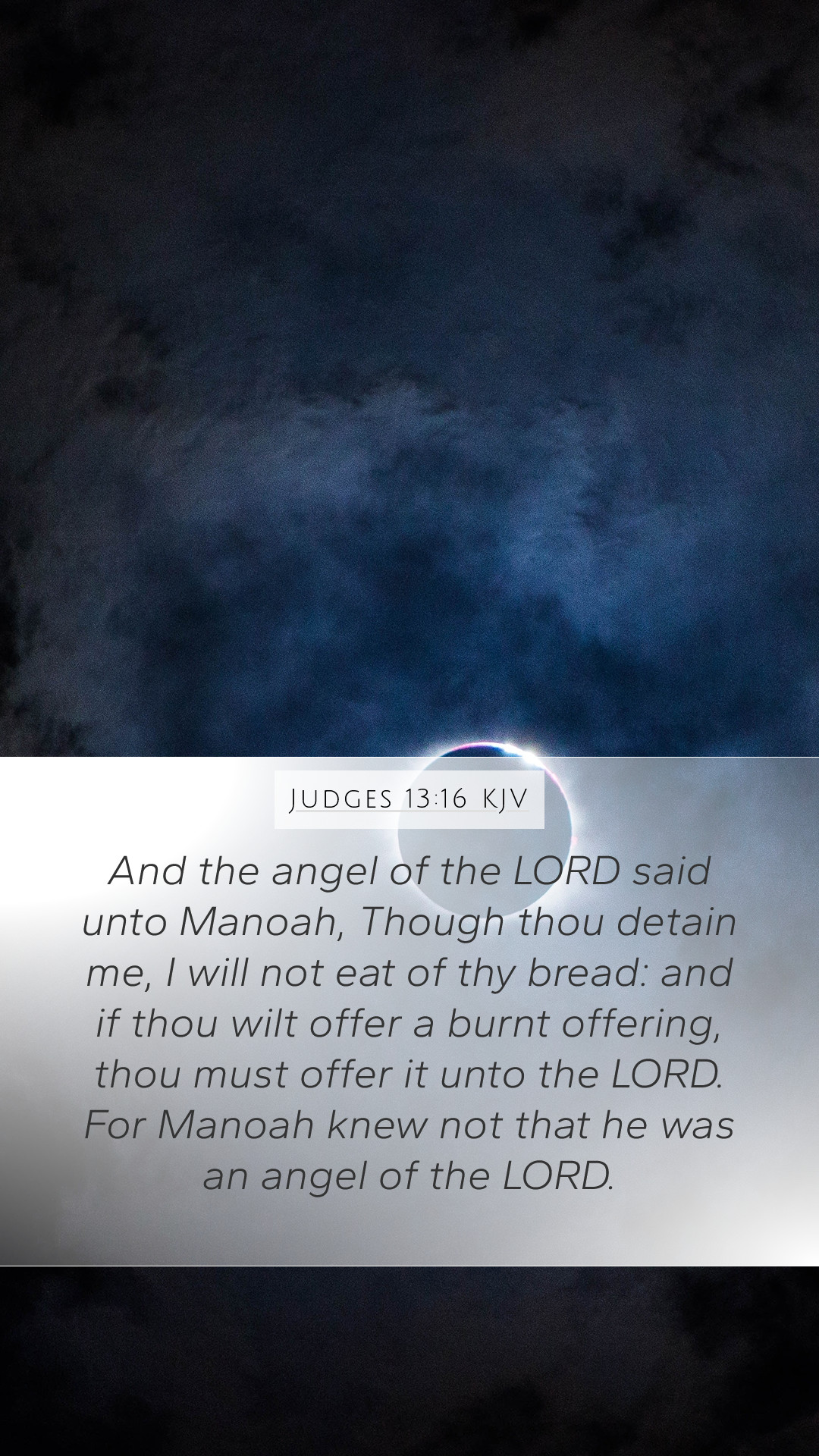Bible Verse Commentary: Judges 13:16
Judges 13:16 states, "And the angel of the Lord said unto Manoah, Though thou detain me, I will not eat of thy bread; and if thou wilt offer a burnt offering, thou must offer it unto the Lord." This verse captures a moment of divine interaction that emphasizes holiness, obedience, and the proper manner of worship.
Understanding the Verse
The verse occurs in a pivotal narrative where an angel of the Lord appears to Manoah, foretelling the birth of Samson. This encounter provides rich material for Bible study insights and Scripture analysis.
Key Themes
- Divine Engagement: The angel signifies God's direct communication with humans, highlighting the importance of divine purpose in Israel's history.
- Obedience over Sacrifice: The angel refuses to eat Manoah's food, teaching that true worship involves offering to God rather than seeking to appease Him with material gifts.
- Burnt Offerings: The directive to offer a burnt offering reinforces the sacrificial systems prescribed in the law, showcasing how one should approach God.
Commentary Insights
Matthew Henry's Perspective
Matthew Henry notes that Manoah's eagerness to honor the angel reflects a commendable reverence for God. However, the angel's refusal to eat demonstrates that God does not require what is external but seeks inward dedication and obedience.
Albert Barnes' Commentary
Albert Barnes expands on the concept of sacrificial worship, highlighting that the burnt offering symbolizes complete dedication to God. It represents not just the offering itself, but a heart prepared to follow divine instruction.
Adam Clarke's Analysis
Adam Clarke emphasizes the unique occurrence of the angel's appearance and its implications for Israel's eventual deliverance through Samson. Clarke also discusses the improper view of treating the angel as merely a human guest rather than understanding his divine nature and authority.
Cross-References
- Leviticus 1:9: Specifies the instructions for burnt offerings.
- Isaiah 1:11: Reflects on the inadequacy of sacrifices without true obedience.
- 1 Samuel 15:22: Highlights that God values obedience above sacrifice.
- Judges 6:20-21: Another angelic encounter leading to a significant calling in Israel.
Application and Reflection
The significance of Judges 13:16 extends beyond its historical context. Believers can draw lessons about proper worship and the nature of God. Understanding Scripture involves recognizing that our acts of devotion should stem from genuine faith and obedience rather than mere rituals or traditions.
Modern Implications
In today's context, the essence of this verse encourages individuals and Bible study groups to engage in online Bible study and explore how they can align their lives more closely with God's will. It is essential to seek profound engagements with God that prioritize heartfelt obedience over external displays.
Conclusion
Judges 13:16 offers profound bible verse meanings, reminding us of the sacredness of our relationship with God. It challenges individuals to assess their approach to worship and ensures it is rooted in obedience and sincere devotion.


